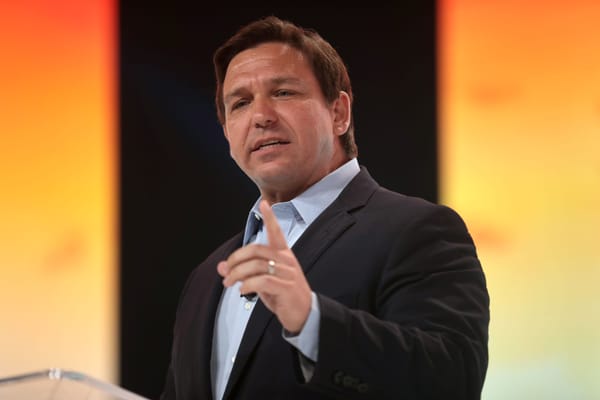On Tuesday, we trustees of the New College of Florida removed the college’s leadership, recommended a figure close to the governor as the next president, and called for a comprehensive review of diversity, equity, and inclusion activities on campus. I believe the latter should be scrapped, particularly in areas of personnel (New College faculty job openings contain a diversity statement that applicants must complete, a kind of loyalty oath to progressive doctrine), and I expect the Florida legislature will act to ban them in the coming months.
The votes we took weren’t very close, and the message is clear that the board intends sweeping change. New College is tiny, with only 700 students, but more than 30 media outlets attended the meeting, and the implications of the vote are reverberating widely. Our actions sound to many like a top-down, hostile takeover, a hasty imposition of political control over what should remain an independent body run by locals.
Leftists think it’s straight-out tyranny flowing from Tallahassee, but they aren’t the only ones concerned. South Carolina philosophy professor Jennifer Frey, a liberal conservative, issued a warning in a tweet: “I guess some people think Florida will be in Republican hands forever. I’m gonna go out on a limb and question that. People who cheer on state control of universities might be singing a different tune when power switches hands unexpectedly.”
It’s a good point. What if leftists were to take over the universities, purge conservatives, and use the institutions to promote their ideology? In a follow-up tweet, Frey proposed a better way: “A different model is not one of ‘vanquishing’ anyone, but dialogue, accountability, and transparency. You can guess which model I prefer.”
She is right, of course. Dialogue, accountability, and transparency are much better than scorching the quad. Why not slow down and try it? If we trustees took a “Let’s dialogue” posture and sat down with faculty, administrators, and students, the latter would certainly listen to our objections to DEI and offer meaningful compromises. We would exemplify academic deliberation together. They would welcome our invitation to dialogue, I am sure, because they respect us, our experience, and our intentions, no matter how many times we have been called racists and bigots this week.
Indeed, I have seen such generosity toward conservatives, traditionalists, and centrist liberals expressed many times over the years by agitated students, except when Penn English students marched into the department, took down a picture of Shakespeare, and mounted one of Audre Lorde; or when student mobs took over the Evergreen State campus with cries against “racist white teachers” and for “Black Power!”; and when angry students forced the resignation of Nicholas Christakis after he tried to hold a dialogue with them over Halloween costumes on the Yale lawn.
And, we may add, administrators have as a matter of course welcomed and defended conservative professors who spoke out against identity politics policies—save for the law school dean at Penn who has it in for Amy Wax; and the UCLA dean who suspended a teacher for not altering grades by the skin color of students; and the leadership of Princeton and their fair and balanced treatment of Joshua Katz.
So yes, let’s show the campus left what responsible and principled leadership looks like. Surely, they will change their attitude and treat conservatives fairly when they return to power. Besides, maybe we conservatives are wrong about our reforms. Maybe DEI ideology is for the good of all. Maybe we need some dialogue, a little listening time so that we learn to be better and do better. I have heard the call for dialogue many times in my academic career. I heard it from President Barack Obama often, and I have witnessed the benefit of it when the left’s adversaries (Republicans, “principled” conservatives, classical liberals) entered the room and joined the dialogue and came out of it in full agreement with the solidly leftist policy or program that was approved through the process; they had been enlightened.
“When given the chance to enact meaningful reforms, we will take it.”
On the other hand, maybe we will just carry out our conviction without calculating what will happen should a political switch occur. Maybe we are so tired of thinking like losers that when given the chance to enact meaningful reforms, we will take it, no matter how temporary those reforms prove to be. Higher education in the United States has undergone so much deterioration in recent times that to worry about things getting worse is a mug’s game. And anyway, conservatives have been almost entirely purged from academia. At this point, there are very few of them who might suffer blowback from this modest initiative in Sarasota.
